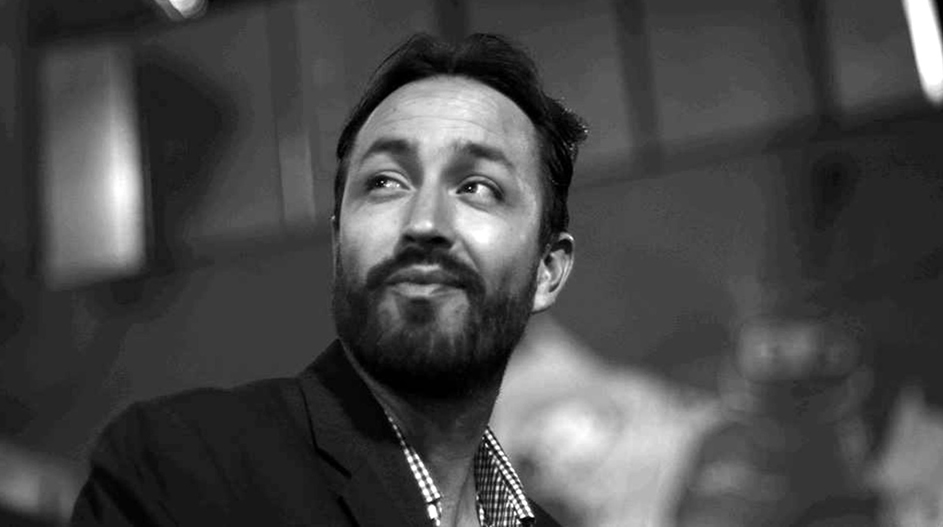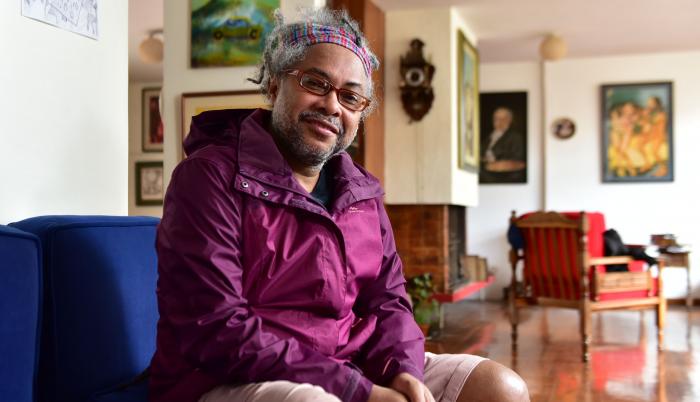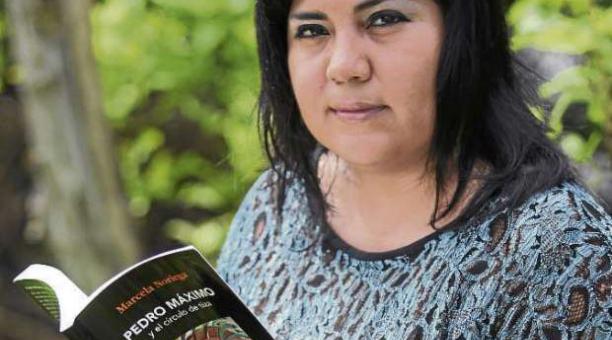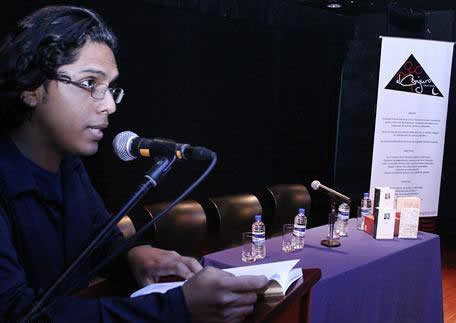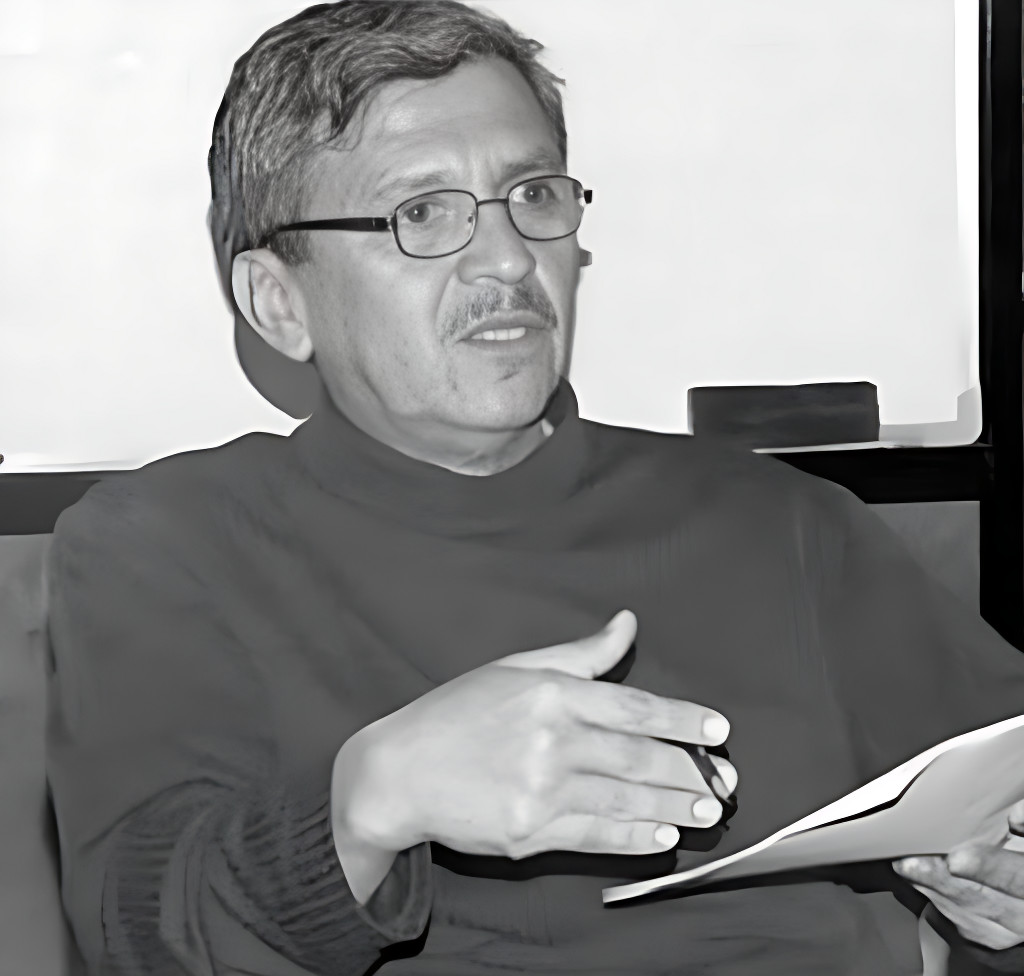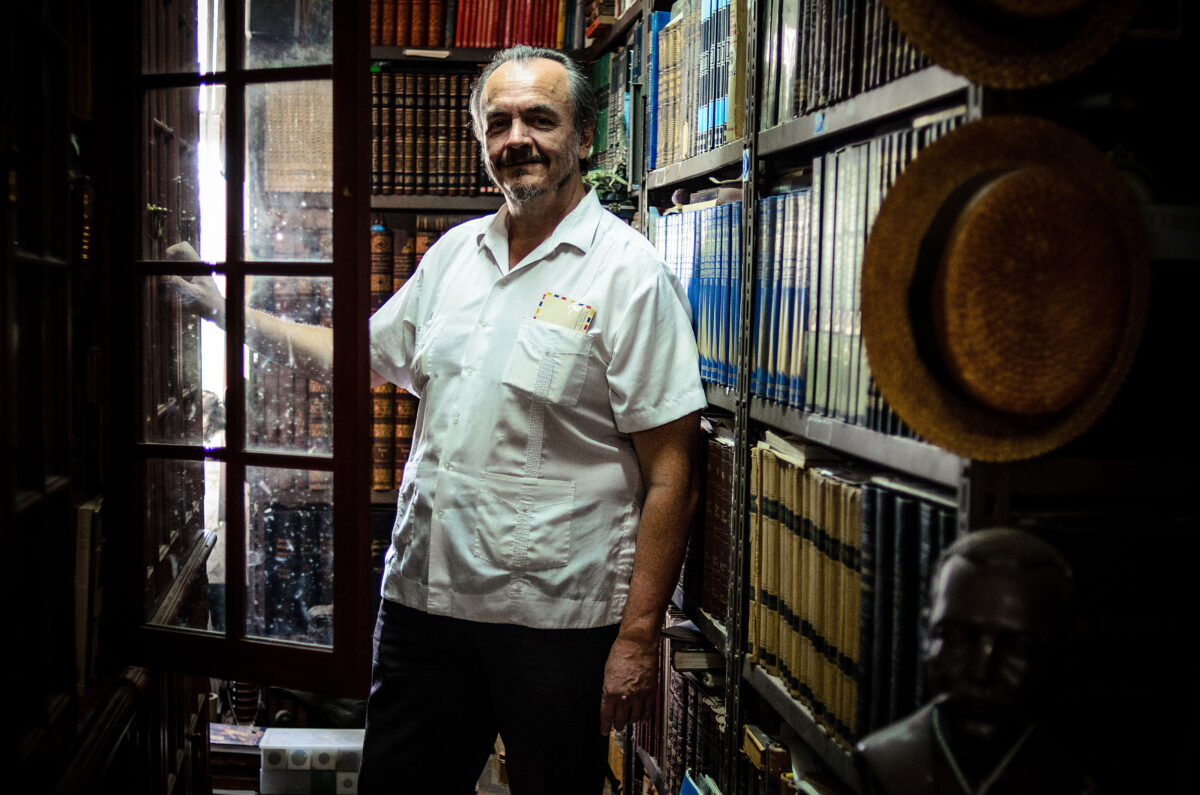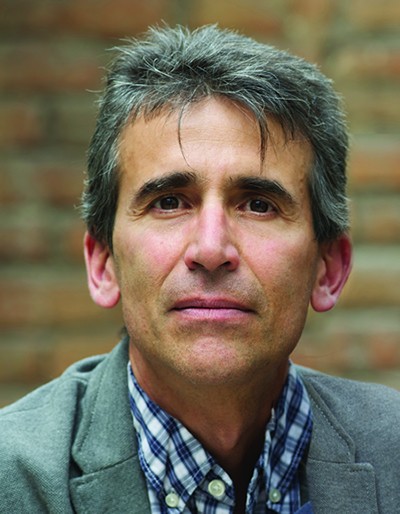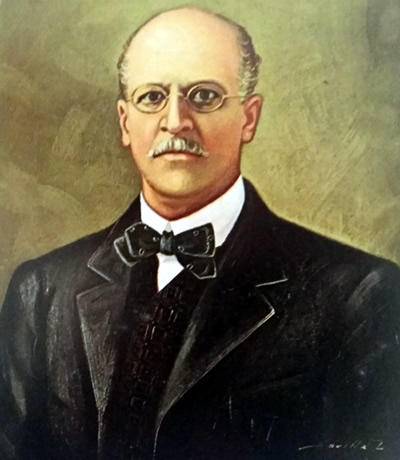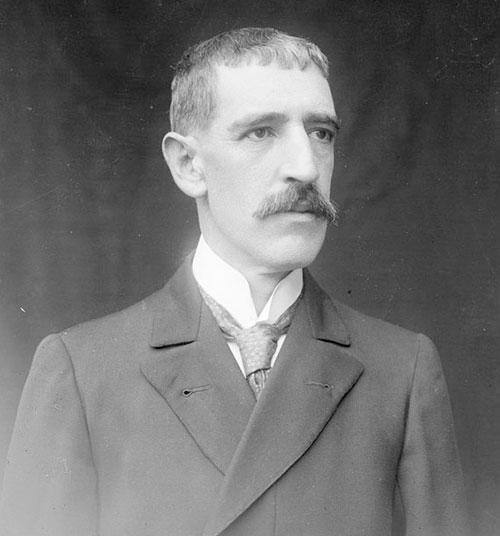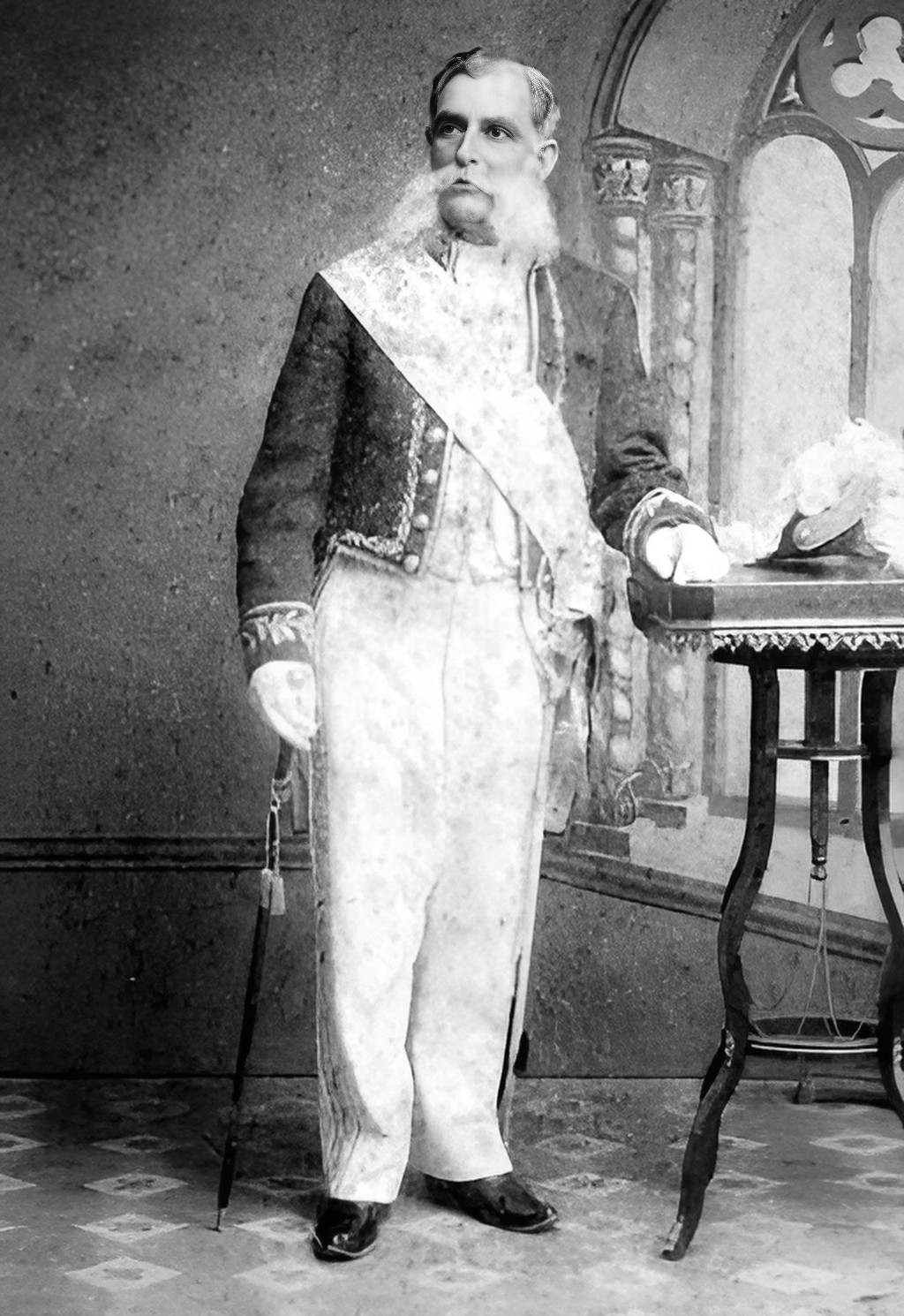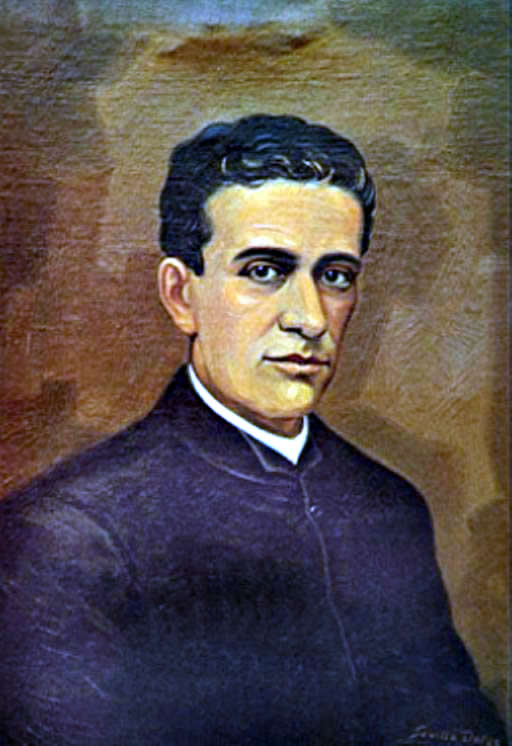Andrés Villalba Becdach is a writer and poet. He was born in Quito in 1981. He studied Social Communication in Quito, journalism in Los Angeles and Latin American literature at Sapienza University of Rome. His books include: Cuaderno Zero (2010), Luigi Stornaiolo: el arte de la digresión (honorable mention in the José Peralta National Journalism Prize, 2010), Obscenidad del vencido (2010), Menos que cero (2011), Muñones (2011), De los acorralados es el reino (2014), Soterramiento (2014), No mueras joven, todavía queda a gente a quien decepcionar (winner of the Jorge Carrera Andrade National Poetry Prize, 2015), Una natural tendencia a la desintegración (fragment, 2017; complete edition, 2018). He also put together the anthology of Ecuadorian poetry Caballo sea la noche.
Continue reading “Andrés Villalba”Month: November 2020
Francisco Santana
Francisco Santana Segura (Guayaquil, 1968) is an Afro-Ecuadorian novelist, short story writer and journalist. He has worked as a writer for the newspapers El Universo and El Telégrafo, and the magazines SoHo and Mundo Diners. His latest novel is La Piel es un Veneno (2020). His genre, often described as “dirty realism,” by critics delves deep into the gritty and unfiltered aspects of life, painting vivid pictures of reality.
Continue reading “Francisco Santana”Marcela Noriega
Marcela Noriega Rodríguez (Guayaquil, 1978) is an Ecuadorian writer, journalist and professor. She is the author of a novel, poetry books, and juvenile and children’s literature. At the age of 19, she won second place at the Biennial of Ecuadorian Poetry in Cuenca and in 2009 she won first place in the same contest with her book No hay que dar voces, published by the University of Cuenca, with support from the Ministry of Culture. She is the author of the novel Pedro Máximo y el círculo de tiza (2012).
Continue reading “Marcela Noriega”César Eduardo Galarza
César Eduardo Galarza (Guayaquil, Ecuador, 1981) is a poet, writer, cultural advisor, academic, radio presenter, and filmmaker. He was a member of the literary workshop of renowned Ecuadorian author Miguel Donoso Pareja from 1999 to 2007. Galarza debuted with Polvo fue su piel (2000), followed by contributions to Mensaje en una botella (2002) and Madera muerta (2008), which earned him recognition at the “Alfonso Carrasco Vintimilla” Ecuadorian Literature Meeting. In addition to his literary career, he has worked as a cultural advisor, and hosted a radio segment on cultural cinema.
Continue reading “César Eduardo Galarza”Roy Sigüenza
Roy Sigüenza (Portovelo, El Oro Province, Ecuador, 1958) is an Ecuadorian poet known for his homoerotic themes and transforming ordinary life into settings for intimate encounters. While his poetry often favors brevity and simplicity, he occasionally incorporates stylized language and references to other gay writers from Europe and the U.S. Within Ecuador’s poetic scene, Sigüenza has pioneered a new lyric voice, openly writing about marginalized sexual experiences, influencing a generation of poets. His candid, confessional style has established him as a literary rebel in the country.
Continue reading “Roy Sigüenza”Melvin Hoyos Galarza
Melvin Hoyos Galarza (Guayaquil, January 9, 1956) is an Ecuadorian historian, architect, and cultural administrator known for his extensive contributions to preserving and promoting Guayaquil’s heritage. Since 1992, he has directed the Municipal Library of Guayaquil, where he oversaw the restoration of historic collections and revived the Boletín de la Biblioteca Municipal, a publication dormant for 80 years. In 2000, he was appointed Director of Guayaquil’s Department of Library, Museum, and Arts, where he transformed the city’s cultural institutions, notably founding the City’s Historical Museum. A distinguished member of the National Academy of History, Hoyos has authored significant works on Ecuadorian history, numismatics, and architecture, including La Moneda Ecuatoriana a Través de los Tiempos (The Ecuadorian Currency Through the Ages, 1998) and Guayaquil: Memorias Urbanas (Guayaquil: Urban Memories, 2007).
Continue reading “Melvin Hoyos Galarza”Adolfo Macias Huerta
Adolfo Macias Huerta (Guayaquil, 1960) is a renowned Ecuadorian novelist and psychotherapist. His significant contributions to contemporary literature have earned him critical acclaim and recognition. With works like “El Mitómano” (2018) and “Donde el sol pierde su reino” (2023), Macías Huerta showcases his talent for crafting compelling narratives that explore themes of art, pain, and the complexities of human existence. His ability to create captivating characters and challenge conventional storytelling boundaries has solidified his position as a notable figure in Ecuadorian literature, while his numerous awards, including the Joaquín Gallegos Lara Prize (1995, 2010) and the National Literature Prize (2017), highlight his literary prowess and literary impact.
Continue reading “Adolfo Macias Huerta”César Borja Lavayen
César Borja Lavayen (Quito, February 6, 1851 – Guayaquil, January 31, 1910) was a writer, poet, translator, physician, politician and professor. He was educated at the National University of San Marcos in Lima, Peru. He served as the Deputy of the National Congress of Ecuador, and mayor of Guayaquil (1903-1904). He was a member of the Ecuadorian Academy of Language (since 1901) and in the latter part of his life was the rector of the Central University of Ecuador (since 1908). For political reasons, he lived various years in exile in Costa Rica. On his return to Ecuador, Borja was appointed to various important posts by President Eloy Alfaro.
Continue reading “César Borja Lavayen”Octavio Cordero Palacios
Octavio Cordero Palacios (Santa Rosa, Azuay, May 3, 1870 – Cuenca, December 17, 1930) was an Ecuadorian writer, poet, playwright, mathematician, lawyer, professor, and inventor. Known for his early literary works such as Gazul (1890) and Los Hijos de Atahualpa (1891), he was also a prolific translator, famously rendering Edgar Allan Poe’s The Raven into Spanish. A graduate of the Universidad de Cuenca, he practiced law and served as a judge while pursuing his intellectual passions, which included pioneering inventions like the Clave Poligráfica, a mechanical translation device. Today, the town where he was born bears his name.
Continue reading “Octavio Cordero Palacios”Luis Cordero Crespo
Luis Benjamín Cordero Crespo (Cañar, April 6, 1833 – Cuenca, January 30, 1912) served as the 14th president of Ecuador between July 1, 1892 to April 16, 1895. Cordero began publishing poetry in Spanish and Quechua after his political and legal career, and in 1892 published the first Quicha-Spanish dictionary. In 1904 he wrote the Hymn of Azuay (also referred to as the Hymn of Cuenca) which is still in use today.
Continue reading “Luis Cordero Crespo”Juan Bautista de Aguirre
Father Juan Bautista de Aguirre y Carbo (Daule, Ecuador, April 11, 1725 – Tivoli, Italy, June 15, 1786) was a writer, poet, philisopher, theologian and Jesuit priest from colonial South America. Aguirre wrote poems of varying topics, including religious, moral, and love poems. Aguirre taught in Quito at the San Gregorio Magno University until the Jesuits were expelled from Spanish America in 1767. On August 20 of that year he left South America from Guayaquil bound for Faenza, Italy, where the Jesuits of Quito had taken refuge. Once in Italy, Aguirre was the superior of the Jesuit convent school in Ravenna and rector of the college in Ferrara. After the Order of the Jesuits was terminated by Pope Clement XIV in 1773, he settled in Rome under the papacy of Pope Pius VI. He was a friend of the bishop of Tivoli, Monsignor Gregorio Bamaba Chiaramonti, future Pope Pius VII.
Continue reading “Juan Bautista de Aguirre”
